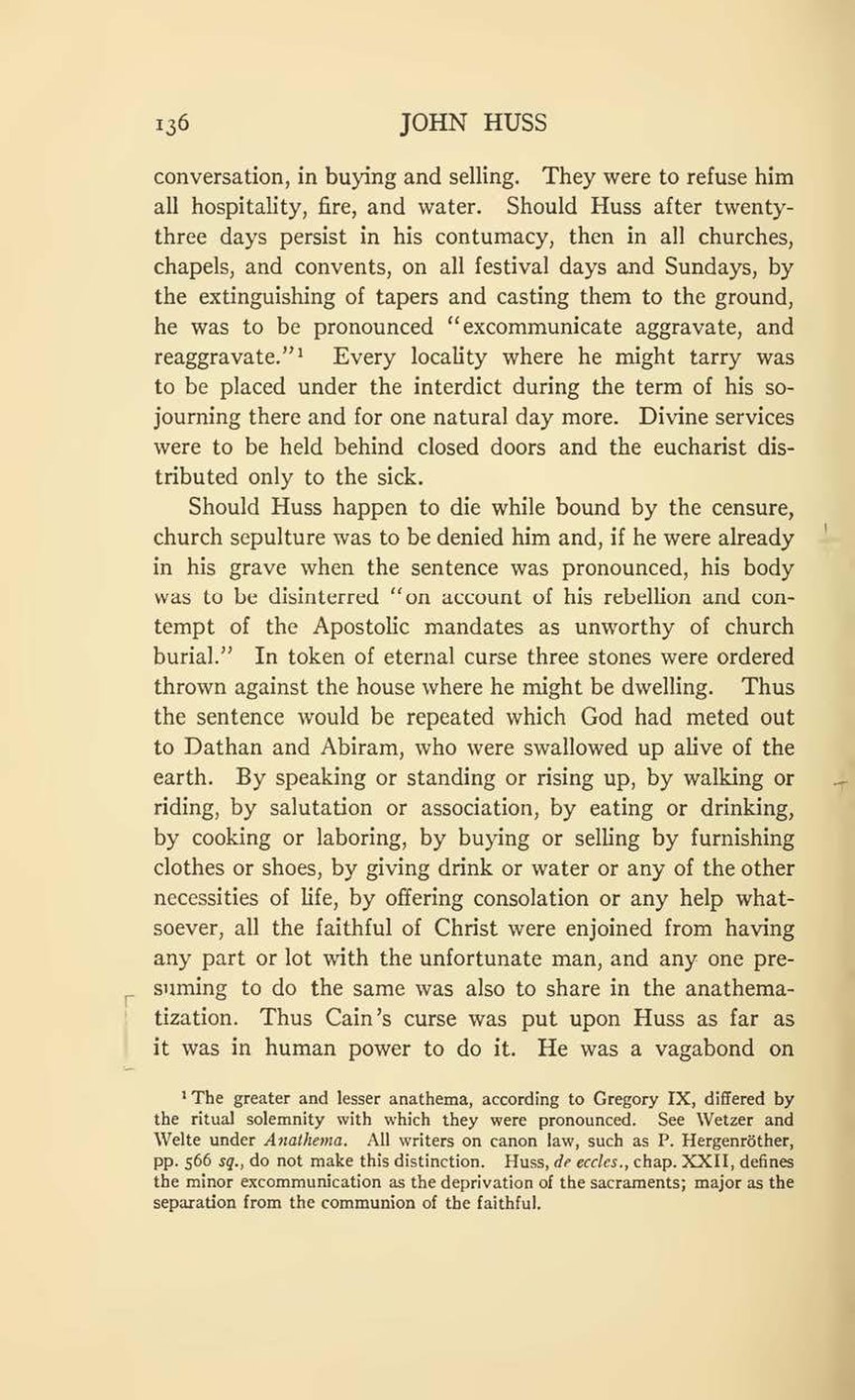conversation, in buying and selling. They were to refuse him all hospitality, fire, and water. Should Huss after twenty-three days persist in his contumacy, then in all churches, chapels, and convents, on all festival days and Sundays, by the extinguishing of tapers and casting them to the ground, he was to be pronounced excommunicate aggravate, and reaggravate.”[1] Every locality where he might tarry was to be placed under the interdict during the term of his sojourning there and for one natural day more. Divine services were to be held behind closed doors and the eucharist distributed only to the sick.
Should Huss happen to die while bound by the censure, church sepulture was to be denied him and, if he were already in his grave when the sentence was pronounced, his body was to be disinterred “on account of his rebellion and contempt of the Apostolic mandates as unworthy of church burial.” In token of eternal curse three stones were ordered thrown against the house where he might be dwelling. Thus the sentence would be repeated which God had meted out to Dathan and Abiram, who were swallowed up alive of the earth. By speaking or standing or rising up, by walking or riding, by salutation or association, by eating or drinking, by cooking or laboring, by buying or selling by furnishing clothes or shoes, by giving drink or water or any of the other necessities of life, by offering consolation or any help whatsoever, all the faithful of Christ were enjoined from having any part or lot with the unfortunate man, and any one presuming to do the same was also to share in the anathematization. Thus Cain’s curse was put upon Huss as far as it was in human power to do it. He was a vagabond on
- ↑ The greater and lesser anathema, according to Gregory IX, differed by the ritual solemnity with which they were pronounced. See Wetzer and Welte under Anathema. All writers on canon law, such as P. Hergenröther, pp. 566 sq., do not make this distinction. Huss, de eccles., chap. XXII, defines the minor excommunication as the deprivation of the sacraments; major as the separation from the communion of the faithful.
